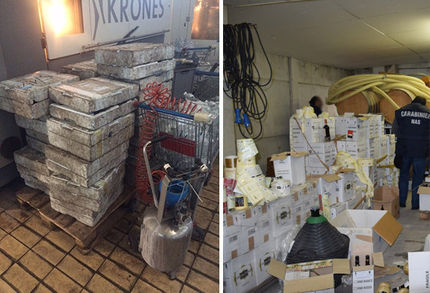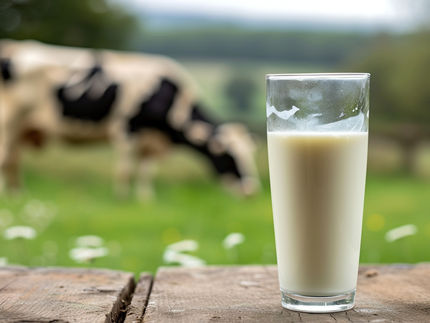Senators reach deal on GMO labeling
Senators have a bipartisan deal to require labeling of genetically modified ingredients nationally, a week before a labeling law in Vermont goes into effect.
The deal announced Thursday by the top Republican and Democrat on the Senate Agriculture Committee would require labeling of genetically modified organisms, or GMOs, in packaged foods nationwide. But it would be more lenient than Vermont's law, allowing food companies to use a text label, a symbol or electronic label accessed by smartphone. Vermont's law would require items to be labeled "produced with genetic engineering."
The agreement couldn't become law before Vermont's law kicks in July 1, since the House is on vacation until July 5. Legislation passed by the House would make the labeling voluntary, but that measure stalled in the Senate last year.
Since then, Democratic Sen. Debbie Stabenow of Michigan and Republican Sen. Pat Roberts of Kansas have worked to find a compromise, saying a national solution is needed in the face of several separate state laws.
The food industry has lobbied to block Vermont's law, arguing that GMOs are safe and the labels could be costly for agriculture, food companies and consumers.
The industry's main lobbying group, the Grocery Manufacturers Association, said it is backing the senators' deal. The group has opposed mandatory labeling nationwide, but advocated for electronic labels in negotiations.
"This bipartisan agreement ensures consumers across the nation can get clear, consistent information about their food and beverage ingredients and prevents a patchwork of confusing and costly state labeling laws," said Pamela Bailey, president of that group.
The Agriculture Department appeared to endorse the legislation, as well, issuing a statement encouraging members of the House and Senate to move quickly on the deal.
Genetically modified seeds are engineered in laboratories to have certain traits, such as resistance to herbicides. The majority of the country's corn and soybean crop is now genetically modified, with much of that going to animal feed. Corn and soybeans also are made into popular processed food ingredients such as high-fructose corn syrup, corn starch and soybean oil. The food industry says about 75 percent to 80 percent of foods contain genetically modified ingredients.
The Food and Drug Administration says they are safe, and there is little scientific concern about those GMOs on the market. But advocates for labeling say not enough is known about their risks. Among supporters of labeling are many organic companies that are barred by law from using modified ingredients in their foods.
Those advocates have fought state by state to enact the labeling, with the eventual goal of a national standard. They have frowned on digital labels, saying they discriminate against people who don't have smartphones, computers or the know-how to use them.
One group that has advocated labeling criticized the deal.
"This deal seems to be designed to ensure that big food processing companies and the biotechnology industry continue to profit by misleading consumers," said Wenonah Hauter, director of Food & Water Watch. (dpa)
Most read news
Other news from the department business & finance

Get the food & beverage industry in your inbox
By submitting this form you agree that LUMITOS AG will send you the newsletter(s) selected above by email. Your data will not be passed on to third parties. Your data will be stored and processed in accordance with our data protection regulations. LUMITOS may contact you by email for the purpose of advertising or market and opinion surveys. You can revoke your consent at any time without giving reasons to LUMITOS AG, Ernst-Augustin-Str. 2, 12489 Berlin, Germany or by e-mail at revoke@lumitos.com with effect for the future. In addition, each email contains a link to unsubscribe from the corresponding newsletter.
Most read news
More news from our other portals
See the theme worlds for related content
Topic world Food safety
Food safety is at the heart of the food and beverage industry. It ensures that the food we eat every day is not only nutritious, but also free of harmful contaminants. From field to plate, the industry monitors and regulates every step of the process with strict quality controls, advanced testing methods and continuous research.

Topic world Food safety
Food safety is at the heart of the food and beverage industry. It ensures that the food we eat every day is not only nutritious, but also free of harmful contaminants. From field to plate, the industry monitors and regulates every step of the process with strict quality controls, advanced testing methods and continuous research.
Topic World Food Analytics
Food analysis methods enable us to investigate the quality, safety and composition of our food. Whether in the traceability of food, the detection of contaminants or the verification of nutritional information - food analytics plays a crucial role in our health and nutrition. Welcome to the exciting world of food analytics!

Topic World Food Analytics
Food analysis methods enable us to investigate the quality, safety and composition of our food. Whether in the traceability of food, the detection of contaminants or the verification of nutritional information - food analytics plays a crucial role in our health and nutrition. Welcome to the exciting world of food analytics!




























































